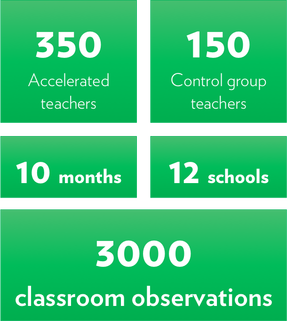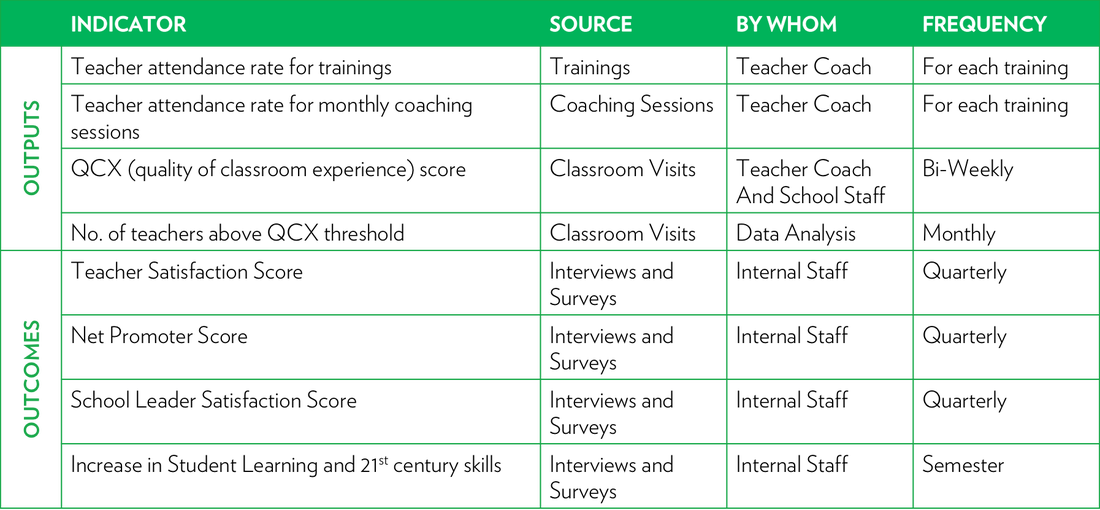We have a robust theory of change that has been tested and refined over the last few years. Our model is not only backed by rigorous external research but also by our obsession with regular data collection. However, evidence and impact assessment in education needs longer time frames and even then attribution can be difficult. We have been closely working with Akshara Foundation in India and the SPRING Accelerator team in the UK and are building on their experience with education interventions.
|
Impact Methodology
|
Where our data comes from
|
|
Our impact assessment methodology is a combination of qualitative and quantitative data collection methods.
We have developed an internal metric called QCX (quality of classroom experience) which we use to measure teacher performance, implementation of our recommended teaching-learning strategies and related student performance. Data is collected per teacher every two weeks throughout the school year to measure progress against set goals. |
Data Collection Process
Student learning outcomes measurement is very resource intensive and as an early-stage startup organization, we currently use proxies like classroom participation and teacher interviews to extrapolate student learning. School leader surveys and teacher surveys are conducted regularly to measure satisfaction and to collect feedback for improving our offering.



